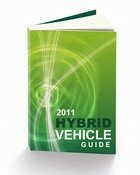Who Wants To Pay More At The Pump?
 Seems like a simple answer at first…nobody wants to pay more for gas than they have to, right? Given the choice of two similar gas station across the street from one another, most would buy their gas at the one with lower prices, wouldn’t they? I know I would, and as the gap between the prices widened, even those who might not switch stations for a few cents per gallon would have a hard time not crossing the street to save a few dollars every time they filled up.
Seems like a simple answer at first…nobody wants to pay more for gas than they have to, right? Given the choice of two similar gas station across the street from one another, most would buy their gas at the one with lower prices, wouldn’t they? I know I would, and as the gap between the prices widened, even those who might not switch stations for a few cents per gallon would have a hard time not crossing the street to save a few dollars every time they filled up.
So, why on Earth would anyone in the U.S. or elsewhere ever want to pay more for gas than they already do? Well, according to some, higher fuel costs would actually be good for the environment and for mankind.
On one hand, paying more at the pump can be horrible and stressful. When gas was $4 or $5 a gallon in 2008, many people avoided trips that weren’t absolutely necessary. I remember in some states there were even gas shortages again, like they had in the 1970’s, where people lined up for the opportunity to fill their gas tanks only to find the station was dry when they got close.
So, why would we want to wish that situation on ourselves again? Maybe because in some cases, higher gas prices eventually cause people to change their driving habits for the better. For example, rather than bury the accelerator when the light flicked to green, you saw people start to take more than 8 seconds to go from zero to sixty. And, you didn’t have so many people taking a “Sunday drive” just because they had nothing better to do. (Maybe a few even went for a walk or bike ride instead.)
Now that the U.S. government has purchased 700,000 older cars for about $2.9 billion dollars via the Cash For Clunkers program, many Americans find themselves behind the wheel of a car that gets much better gas mileage than their old model. Rather than spending $40 at the pump three times a week, they’ve traded for more fuel efficient models. According to recently released data, those who participated improved their gas mileage by a whopping 61%. But will it have an impact?
On the other side of the argument are the environmentalists, who sadly remind us that even with all the trade-ins for the ‘Cash For Clunkers’ and even with the nice improvement in gas mileage, cars account for so little of our overall pollution in this U.S. that the Clunkers program only saved us 57 minutes of pollution output over the course of one year. The program might save us 700,000 tons of carbon dioxide; however, Americans produces 728,000 tons of waste per hour. So, even though the program seems like a valiant effort to improve gas consumption it doesn’t change the fact the carbon dioxide emissions makes up only a small portion of the pollution released in the United States. Regardless of where you stand on the issue, it seems that three quarters of a million drivers will save a few bucks every time they fill up now, so how can that be bad for anyone (except maybe big oil companies)?
Is paying a little more at the pump good or bad then? Depends who you ask. Both sides can be argued, but it does appear that as gas prices rise a little, searches for hybrid, electric, and more fuel-efficient gas and diesel cars go up. So do sales of those vehicles, while sales of gas guzzlers drop. It almost seems like there might be a favorable range in gas prices that most people could agree upon. If I had to be the first to guess where that might be, I’d say somewhere between $2 and $3 per gallon is where I am most comfortable. I don’t like to see gas at $1.50 and I remember that when it edged above $3, that’s when things got a little ugly.
In case you are interested in the Cash For Clunkers final results, I found the following recap here.
Top ten vehicles purchased under the program:
1. Toyota Corolla
2. Honda Civic
3. Toyota Camry
4. Ford Focus FWD
5. Hyundai Elantra
6. Nissan Versa
7. Toyota Prius
8. Honda Accord
9. Honda Fit
10. Ford Escape FWD
Top ten vehicles traded in under the program:
1. Ford Explorer 4WD
2. Ford F150 Pickup 2WD
3. Jeep Grand Cherokee 4WD
4. Ford Explorer 2WD
5. Dodge Caravan/Grand Caravan 2WD
6. Jeep Cherokee 4WD
7. Chevrolet Blazer 4WD
8. Chevrolet C1500 Pickup 2WD
9. Ford F150 Pickup 4WD
10. Ford Windstar FWD Van
Average new-vehicle mileage: 24.9 miles per gallon
Average clunker mileage: 15.8 miles per gallon
Increase: 9.1 miles per gallon



















